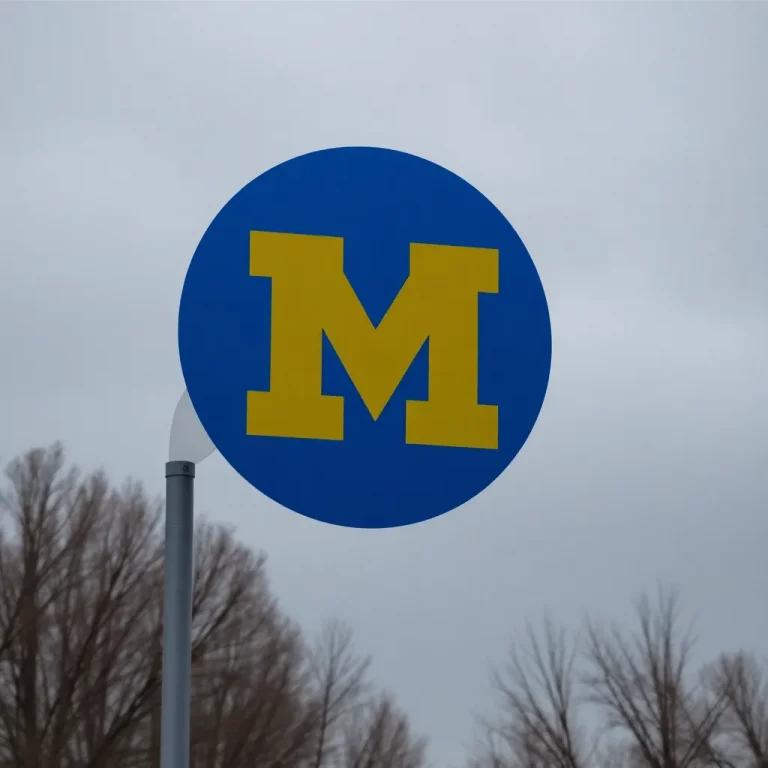NCAA Hits Michigan with Unprecedented Sanctions Over Sign-Stealing Scandal
In Ann Arbor, Michigan, the NCAA has handed down significant penalties to the University of Michigan football program due to a comprehensive sign-stealing scheme orchestrated by former staffer Connor Stalions. This decision, described by the NCAA’s Committee on Infractions (COI) as “one of one,” comes with fines that may total over $30 million but notably avoids a postseason ban for the school.
The COI issued its findings on Friday, highlighting that Stalions and his crew, who labeled themselves “the KGB,” engaged in unethical practices that threatened the integrity of college athletics. Their tactics included recording video footage of opposing teams’ coaching signals from the stands during games—an approach that goes against NCAA rules regarding in-person scouting.
Despite these serious violations, the COI stopped short of grounding Michigan’s postseason opportunities, instead opting to strip the school of its postseason revenue for the next two seasons. COI chair Norman Bay stated that a postseason ban would unfairly impact student-athletes who had no part in the wrongdoing.
Michigan is set to face fines exceeding the previous record of $8 million imposed on Tennessee last year, adding to the financial burden with a 10 percent deduction from the football budget, estimated at $7.2 million. The impact of these fines will be profound, especially considering that Big Ten teams had an average postseason revenue of $7.87 million in 2024, a figure projected to surge to over $21 million by 2026.
In response to the ruling, the university announced plans to appeal, arguing against what they called “fundamental errors” in how NCAA rules were applied. They aim to challenge the conclusions drawn by the COI, stating that they were at odds with the evidence presented during the investigation.
As part of the sanctions, head coach Sherrone Moore has been suspended for the opening game of the 2026 season and faces a two-game suspension during the upcoming season. Former coach Jim Harbaugh, currently the head coach of the Los Angeles Chargers, has been issued a 10-year show-cause order that restricts him from coaching in college football until 2038. Stalions himself has received an eight-year show-cause order.
The NCAA has opted not to vacate Michigan’s results from their impressive seasons in 2021, 2022, and 2023, which saw them winning three consecutive Big Ten titles. However, the committee expressed concern over whether the sanctions would deter future cheating by other programs.
The scheme devised by Stalions had allowed him to collect footage from 52 games across three seasons, further complicated by his attempts to cover his tracks, such as destroying evidence. The committee noted that his efforts to mislead investigators were significant failures, emphasizing a broader culture of disregard for NCAA compliance within the football program.
Michigan’s case raises numerous questions, including the funding behind Stalions’ operation and the full extent of knowledge from the coaching staff about the illegal activities. The ruling reveals the complexities of the scandal, leaving open many avenues for inquiry as the university approaches its appeal.


